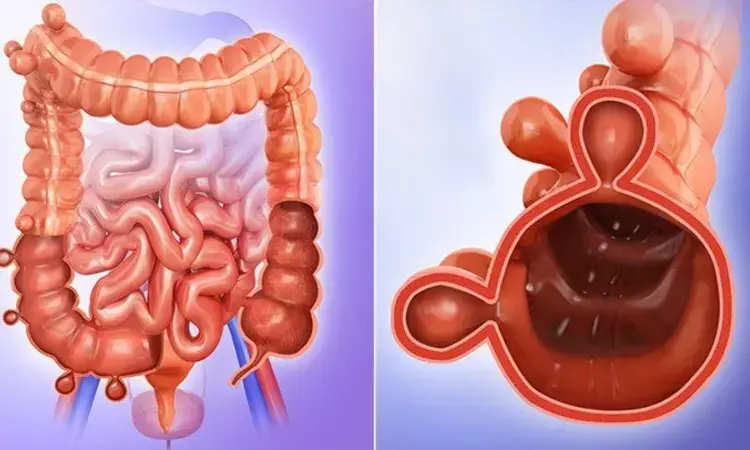- Home
- Medical news & Guidelines
- Anesthesiology
- Cardiology and CTVS
- Critical Care
- Dentistry
- Dermatology
- Diabetes and Endocrinology
- ENT
- Gastroenterology
- Medicine
- Nephrology
- Neurology
- Obstretics-Gynaecology
- Oncology
- Ophthalmology
- Orthopaedics
- Pediatrics-Neonatology
- Psychiatry
- Pulmonology
- Radiology
- Surgery
- Urology
- Laboratory Medicine
- Diet
- Nursing
- Paramedical
- Physiotherapy
- Health news
- Fact Check
- Bone Health Fact Check
- Brain Health Fact Check
- Cancer Related Fact Check
- Child Care Fact Check
- Dental and oral health fact check
- Diabetes and metabolic health fact check
- Diet and Nutrition Fact Check
- Eye and ENT Care Fact Check
- Fitness fact check
- Gut health fact check
- Heart health fact check
- Kidney health fact check
- Medical education fact check
- Men's health fact check
- Respiratory fact check
- Skin and hair care fact check
- Vaccine and Immunization fact check
- Women's health fact check
- AYUSH
- State News
- Andaman and Nicobar Islands
- Andhra Pradesh
- Arunachal Pradesh
- Assam
- Bihar
- Chandigarh
- Chattisgarh
- Dadra and Nagar Haveli
- Daman and Diu
- Delhi
- Goa
- Gujarat
- Haryana
- Himachal Pradesh
- Jammu & Kashmir
- Jharkhand
- Karnataka
- Kerala
- Ladakh
- Lakshadweep
- Madhya Pradesh
- Maharashtra
- Manipur
- Meghalaya
- Mizoram
- Nagaland
- Odisha
- Puducherry
- Punjab
- Rajasthan
- Sikkim
- Tamil Nadu
- Telangana
- Tripura
- Uttar Pradesh
- Uttrakhand
- West Bengal
- Medical Education
- Industry
Endoscopic band ligation for colonic diverticular hemorrhage lowers early and late rebleeding rates: Study

Japan: A recent study suggests that endoscopic band ligation (EBL) versus clipping lowers both early and late rebleeding rates following endoscopic treatment for colonic diverticular hemorrhage (CDH). This reduces the need for interventional radiology (IVR) and results in a shorter length of hospital stay (LOS).
The findings of the analysis of a large endoscopy dataset published in the journal Endoscopy suggest that EBL is an effective and safe endoscopic therapy for CDH.
Diverticular hemorrhage is the most common cause of severe colon bleeding and requires hospitalization after presentation with hematochezia. Previous studies have shown the effectiveness of EBL and clipping for CDH but were small and conducted at single centers. Katsumasa Kobayashi, Department of Gastroenterology, Tokyo Metropolitan Bokutoh Hospital, Tokyo, Japan, and colleagues, therefore, aimed to investigate that which among the two treatments is more effective and safe in a multicenter long-term cohort study.
For this purpose, the researchers reviewed data for 1,679 patients with CDH who were treated with EBL (n=638) or clipping (n=1,041) at 49 hospitals across Japan (CODE BLUE-J Study) between January 2010 and December 2019. The outcomes were two treatments were compared using logistic regression analysis.
The study revealed the following findings:
- In multivariate analysis, EBL compared with clipping was independently associated with reduced risk of early rebleeding (adjusted odds ratio [AOR] 0.46) and late rebleeding (AOR 0.62).
- These significantly lower rebleeding rates with EBL were evident regardless of active bleeding or early colonoscopy.
- No significant difference was found between the treatments in the rate of initial hemostasis or mortality.
- EBL compared with clipping independently reduced the risk of the need for interventional radiology (IVR) (AOR 0.37) and prolonged length of hospital stay (LOS) (AOR 0.35), but no need for surgery.
- Diverticulitis developed in 1 patient (0.16%) following EBL and 2 patients (0.19%) following clipping.
- Perforation occurred in 2 patients (0.31%) following EBL and none following clipping.
"Our findings suggest that EBL is an effective and safe endoscopic therapy for CDH offering the advantages of lower early and late rebleeding rates, reduced need for IVR, and shorter LOS," wrote the authors.
Reference:
The study titled, "Effectiveness and adverse events of endoscopic clipping versus band ligation for colonic diverticular hemorrhage: A large-scale multicenter cohort study," was published in the Thieme journal Endoscopy.
DOI: 10.1055/a-1705-0921
Dr Kamal Kant Kohli-MBBS, DTCD- a chest specialist with more than 30 years of practice and a flair for writing clinical articles, Dr Kamal Kant Kohli joined Medical Dialogues as a Chief Editor of Medical News. Besides writing articles, as an editor, he proofreads and verifies all the medical content published on Medical Dialogues including those coming from journals, studies,medical conferences,guidelines etc. Email: drkohli@medicaldialogues.in. Contact no. 011-43720751


